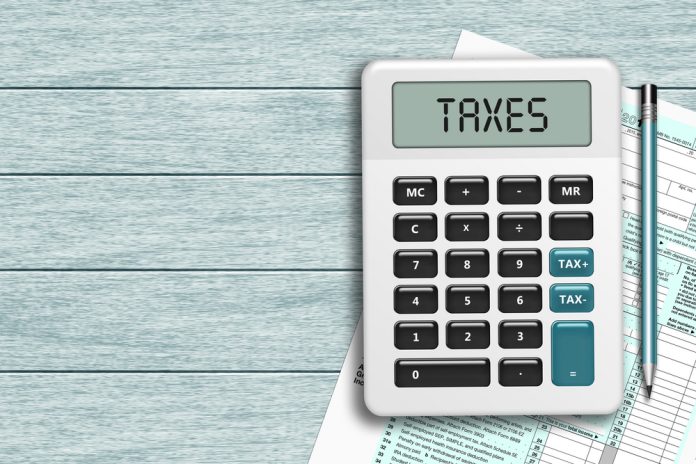About 1 out of every 5 business owners don’t know their small business tax rates. Yet, if you talk to business owners, one of the most important issues they have is paying taxes.
You have a lot to worry about as a business owner, and the tax world is very confusing. The tax code has thousands of pages, and it’s hard to make sense out of any of them.
Do you want to know how you can make sense out of taxes? Keep reading to learn what the small business tax rates are and how you can calculate how much you need to pay in taxes.
How You Pay Taxes Depends on Your Business Structure
How much tax does a small business pay? There are several factors at play that determine how much you will pay in taxes. The first that the IRS will look at is the legal structure of your business. This is how you set up your business when you first started.
S-Corp
An S-Corp is a structure that passes business income and losses to the owner(s) of the business. The corporation doesn’t have to pay federal income taxes, but the owners of the business will report the income they received from the business on their personal income taxes.
Partnership or Multi-member LLC
A partnership or multi-member LLC is taxed in a similar way as an S-Corp because the owners are responsible for paying income taxes, not the LLC.
In this instance, you’ll report the business income for the year. Each member will pay income taxes based on their ownership percentage.
For example, if the business earned $50,000 for the year and there are two members with a 50% share, each member would pay income taxes on $25,000.
Sole Proprietor
The IRS sees no difference between your personal and income taxes. You’ll report your business income on Form Schedule C and pay taxes according to your net business income.
You’ll pay federal income taxes, state taxes, and self-employment taxes.
Note that a single-member LLC is taxed just like a sole proprietor. However, a single-member LLC can elect to be taxed as an S-Corp. You would have to separate your business and income taxes.
Self-Employment Taxes
For sole proprietors and single-member LLC owners, you’re responsible for self-employment taxes. This is the tax that gets small business owners because it can be a big chunk of your earnings.
The self-employment tax rate is 15.3%, where 12.4% is for Social Security and 2.9% is for Medicare. This is paid on the net business income.
Remember that self-employed people can deduct 50% of self-employment taxes from your income taxes.
Small Business Tax Rates
Since the vast majority of home-based businesses run either as a sole proprietorship or single-member LLCs, your main tax concern is to understand federal income tax rates.
Your federal tax bracket depends on your adjusted gross income and your filing status. There are 7 federal income tax brackets, with a maximum tax rate of 37%.
The IRS adjusts the number of earnings in each tax bracket every year to account for inflation. You can see the 2020 tax brackets here.
State Tax Rates
Another small business tax responsibility is a state tax. Where you pay state taxes will depend on where you reside and have the business registered.
There is another emerging issue with state taxes, especially for online businesses. Normally, you’d pay state taxes where your business has a physical presence. That’s called a nexus.
That may be changing thanks to a Supreme Court decision between South Dakota and e-commerce giant Wayfair. That allows South Dakota to tax companies that do business there, even if they don’t have a physical presence.
Since that decision, states are rushing to change their nexus laws so they can tax out of state income. This is something that you need to be aware of.
Doing Your Small Business Taxes
As you can tell, there is a lot of information when it comes to small business taxes. How can you even begin to get your taxes done correctly? Follow these tips.
Get Documents Together
Start by getting your documentation together. You’ll need your business receipts, invoices, bank statements, and any tax documentation forms, such as 1099-MISC forms and 1099-INT forms.
If you don’t have income forms, you may have to use a check stub template to create them yourself.
Income and Expenses
You have to determine what your net business income was for the year. That’s done by calculating your income for the year and then subtracting your business expenses.
Remember that you can only deduct qualified business expenses. Trying to throw in extra expenses to lower your net income will likely lead to an audit.
Work with an Accountant
It’s always best to work with a tax expert. You don’t want to make mistakes on your small business taxes that can lead to penalties or audits. Even before paying taxes, you should determine which are the write-offs that apply, whether you are a freelancer, have a small online business, etc. For this, you will find the professional guide very useful.
Plus, think of the time you save because you’re not trying to figure out the various tax laws and deductions.
Learning the Important Things to Know About Taxes
It’s easy to joke and complain about small business taxes. It’s another to understand how taxes work and how much you really pay for taxes.
Small business tax rates depend on a few circumstances. Your business structure, how you elect to tax your business income, and your net business income influence how much in small business and personal income taxes you have to pay.
You need to learn and understand how taxes work and work with a professional who can guide you to make smart choices for your business. That will help you reduce your business income taxes.
Ready for more great home business tips? Be sure to visit the homepage of this site for helpful tips just for home-based business entrepreneurs.
Find a Home-Based Business to Start-Up >>> Hundreds of Business Listings.

















































